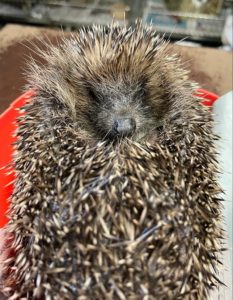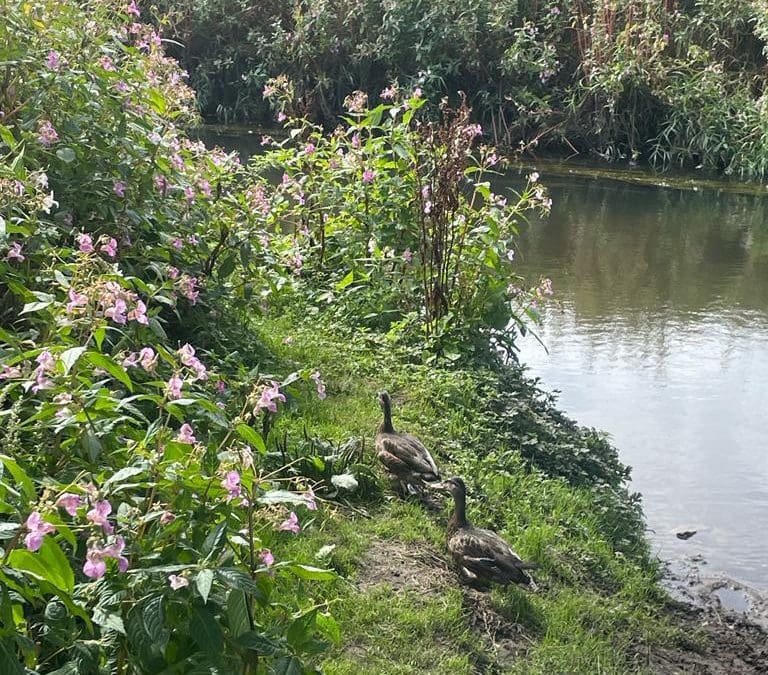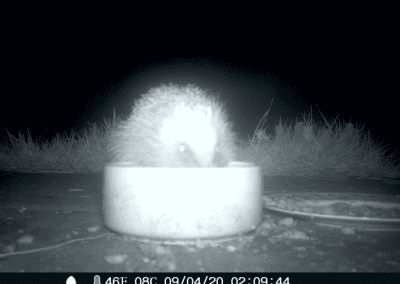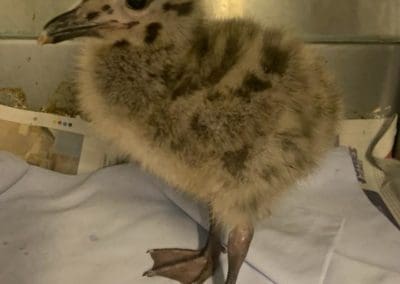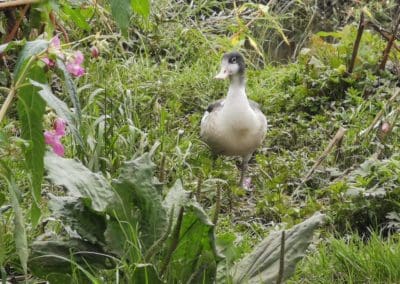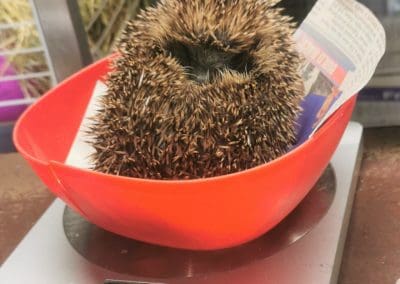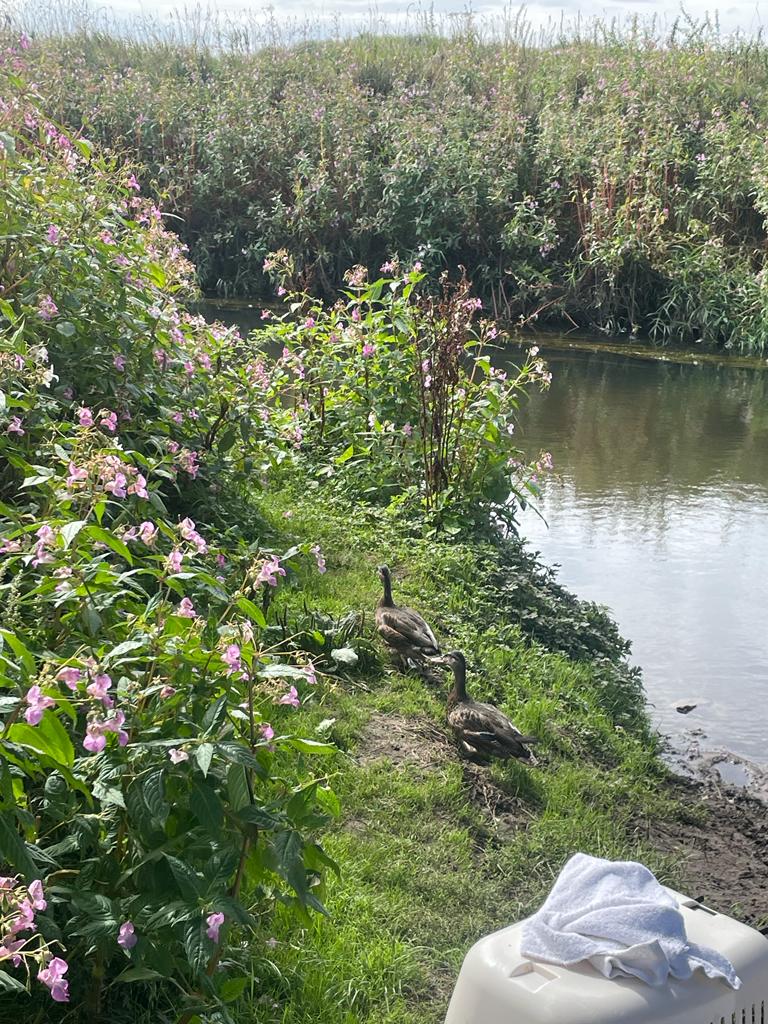
With the warmer weather soon coming to an end, the wildlife team have been working hard to get releasing as many wild animals as possible, that are fit enough to be returned to the wild. In total, over the last four weeks 40 wild animals have been released from our care!
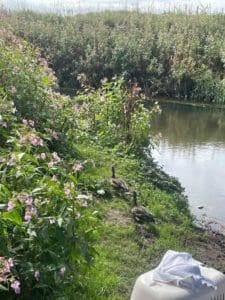
Sadly, the Avian Influenza outbreak is still having a devastating impact on the wild bird population. Because of this we are unable to admit wild birds that are not found within our immediate area. If you do find a wild bird in need of help, please do not hesitate to call us, as we will be able to give you advice and contact details for other rescues and rehabilitators who may be able to help you. You can contact us on 0151 931 1604.
Please remember, if you have any newspapers, shredded paper or towels that you can donate we would be extremely grateful. You can drop any donations off at our Liverpool site between the hours of 9:30am – 4:30pm. There is also a donations bin outside of the entrance.
Out and about in August
Despite being colourful birds, jays are generally heard more often than seen, as they spend most of the year hidden away in woodland, but in the autumn, you can see them gathering and storing acorns to eat during the winter. Look out for them burying acorns in lawns.
Flocks of swallows and house martins line up on telegraph wires late summer, as they begin to congregate before heading south for the winter. They also gather in large flocks in reedbeds, where they feed on insects before their journeys to sub-Saharan Africa.
Warblers such as Blackcaps and whitethroats are also frantically feeding on berries in preparation for their long journeys to southern Europe and beyond.
Migrant hawkers are one of the late dragonflies to emerge as adults in the summer, and can be seen still flying as late as November. They breed in pools of standing water but look for the adults flying in gardens, woodland and along hedgerows too. As a group, hawkers are the largest and fastest flying dragonflies; they catch their insect-prey mid-air and can hover and fly backwards.
Water voles become more visible in late summer as the vegetation along the river banks begins to die back. There are also lots of young water voles around as they are now large enough to leave their burrows and find food for themselves.
Queen German, or European wasps are the main species of social wasp in the British Isles. They have now stopped laying eggs and caring for larvae. These wasps are now doomed, as unlike the carnivorous, protein-hungry grubs, adult wasps sip sugars. These were provided by the grubs in the nest as a sweet fluid secreted in exchange for being given meat. Now the worker wasps must fend for themselves, so in their dying days they search gardens, parks and the countryside for nectar and fruit. As these supplies dwindle, they target our food instead.
Numbers of many arachnids peak in late summer and early autumn, which is how harvestmen got their name. Eight-legged but not spiders, these creatures have long spindly limbs holding up a body that always seems much too small. It is a single pea-shaped structure, whereas spiders have two body sections. Harvestmen lack venom and eat just about anything.
In autumn, red squirrels are busy searching for tree seeds, fungi, berries, birds’ eggs and even sap to fatten them up for winter. They love hazelnuts but have trouble digesting acorns, unlike grey squirrels, who love them. Red squirrels like to look after their teeth by gnawing on pieces of dead deer antler, which are full of calcium. Squirrels have an exceptionally good sense of smell. They can find buried food underneath a foot of snow and know if a nut is rotten without opening it.
Did you Know…
that house cats are believed to be the only mammal that don’t have a sweet tooth.
A snail can sleep for three years at a time.
There are 1 million ants for every human in the world.
Elephants have a specific alarm call that means “human”.
Please remember to…
support wildlife at this time of the year by putting out food and especially water during dry weather to prevent wildlife suffering from dehydration.
Providing shallow saucers filled with water and small stones are ideal for insects to drink from.
Discarded plastic is now becoming more and more common on beaches and beauty spots, and family days out can involve a great deal of single-use plastic. Please consider bringing your own lunch and refreshments in reusable containers.
Please keep pets indoors if fledglings are on the ground. Their parents will be close and will still be feeding them.
Please remove rubbish from your gardens or local area to prevent wildlife from injury.
And Finally…
Please remember to seek advice from the wildlife staff before bringing an animal to the rescue. If an animal is seriously injured, please take it to a vet as we don’t always have a vet on site. Vets rarely charge when treating wildlife.

Merchandise

Freshfields Lottery
